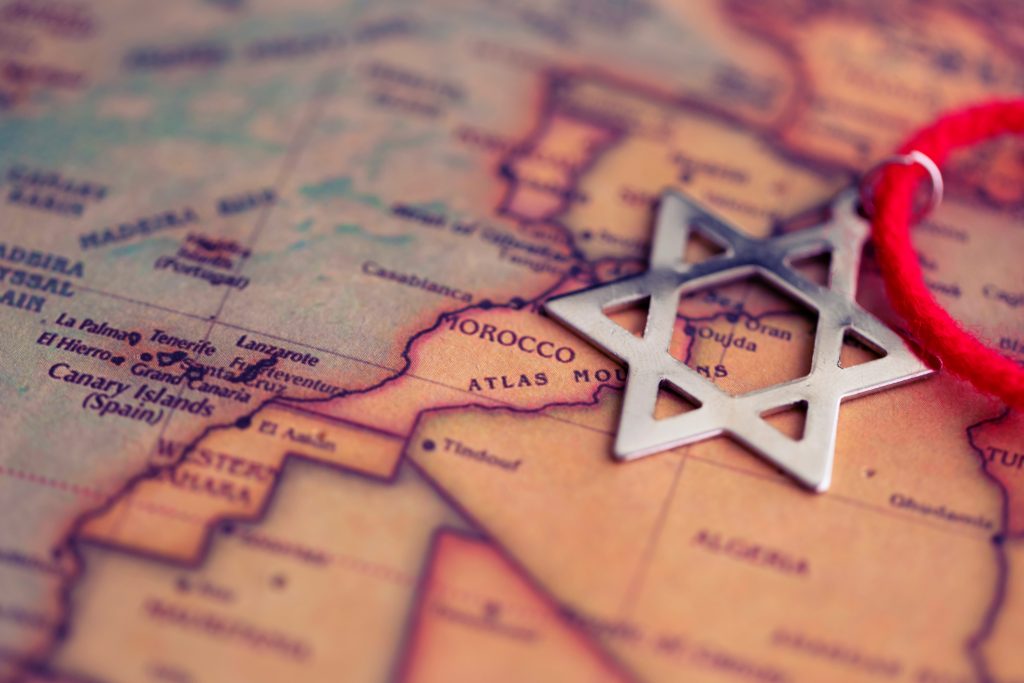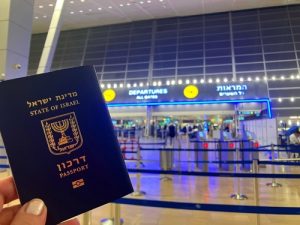Aliyah to Israel
What is Aliyah
Aliyah is the formal term for Jewish immigration to Israel, rooted in the Hebrew word for “ascent,” symbolizing the spiritual and historical return to the Land of Israel. Today, aliyah to Israel represents a structured legal and administrative immigration framework governed by Israeli law, enabling Jews and eligible family members worldwide to become citizens.
The process is supported by official institutions such as The Jewish Agency for Israel, Israel’s Ministry of Aliyah and Integration, and Israel’s network of consulates.
However, navigating these authorities alone can be overwhelming and stressful, as extensive bureaucracy may delay repatriation for months or even years. This is where WRAI comes in providing professional guidance that simplifies the process and helps applicants avoid costly mistakes.
Who’s eligible to make Aliyah to Israel?
Eligibility is determined primarily by the Law of Return, which defines who has the right to immigrate to Israel and acquire citizenship. Under the Law of Return (1950), the following individuals may immigrate to Israel:
- A Jew according to Israeli law
- A child or grandchild of a Jew
- The spouse of a Jew, or of a child or grandchild of a Jew
- Converts to Judaism recognized by a Jewish community
Eligibility does not require religious observance. Instead, it is based on Jewish descent and inclusion within the broader Jewish people.
Those who are eligible for Aliyah may receive assistance with their immigration and resettlement in Israel through various programs and organizations. Overall, Aliyah is a significant part of Israel’s identity as a Jewish state and is an option available to those who meet the eligibility criteria. Jew loses the possibility of obtaining Israeli citizenship under the Law of Return if he has converted to another religion. A person who hides this fact during repatriation can be deprived of Israeli citizenship. Non-religious people, however, are allowed to be repatriated.
The Historical roots of Aliyah

By the beginning of the fourteenth century they were joined by immigrants from Germany, Italy, and even Africa. From the middle of the nineteenth century, people from Morocco and Eastern Europe began to actively immigrate to the Israel.
There are five main waves of aliyah to Israel:
- The first – The Declaration of Independence of Israel (1948) proclaims that the newly created state is open to the repatriation of Jews throughout the world. The Israeli government considers itself responsible for the fate of Jews throughout the world and, above all, for ensuring that every Jew, wherever he may live, can exercise his right to aliyah. The legal framework for this right is the Law of Return, adopted by the Knesset on July 5, 1950.
- The second – In the years of mass aliyah after the formation of the state, operations were carried out to relocate entire Jewish communities into the country (Iraq’s “Operation Ezra and Nehemiah” and Yemen’s “Operation Magic Carpet”). The Knesset, the government, and the public have led the struggle for the right to aliyah in countries where the authorities prevent the free departure of their Jewish citizens. Thus, the years-long fight for the right of Soviet Jews to leave the Soviet Union back in the late 1960-70s was a considerable success: under pressure from international public opinion, the Soviet authorities were forced to allow about a quarter of a million Jews to leave the country.
- The third – Since the 1980s Israel has provided repatriation assistance to Jews in Ethiopia, Argentina, France and other countries. Israel not only appeals to Jews in the Diaspora to repatriate and facilitates repatriation itself, but also provides comprehensive assistance to new repatriates.
an Israeli citizenship specialist
The Aliyah Law
The Law of Return was adopted by Israel’s Knesset on July 5, 1950 and aims to encourage Jews from around the world to return to their ancestral homeland. It consists of four articles outlining the rules of repatriation.
The law has been around for over 70 years and has been amended several times. In 1970, a definition of who can be considered a Jew was added, along with updates to the list of eligible citizens. This made it possible for Jews, their children and grandchildren, and their spouses to obtain Israeli citizenship.
According to the law, a passport can be obtained in the following ways:
- By birth;
- By naturalization;
- By marriage to an Israeli;
- By proof of Jewish origin.
The Aliyah process
The process of making aliyah to Israel is the easiest way to move there. The Law of Return, established in 1950, makes it possible for Jews, their children and grandchildren, and those who have undergone legal conversion to Judaism, as well as Jewish widows/widowers, to obtain Israeli citizenship. If you qualify, you can get on the list for aliyah and we can assist with the repatriation process.
You can apply for aliya while on a tourist visa in Israel or in your country of residence.
- In the second case, you need to go to the embassy and write an application for interview verification. After that you need to collect all the necessary documents, which may vary depending on the specific situation. The process of each case for Israeli citizenship is different, be prepared for this.
- Pass the interview successfully. If the fact of belonging to the Jewish people is established, the applicant and his family receive a repatriation visa. The period of validity of such a visa is 180 days, during which you must enter the territory of Israel and obtain local documents and citizenship.
- Choose the repatriation program, the place of residence in Israel and the date of the flight. Jewish Agency may offer a future repatriate who received a visa for permanent residency in Israel ticket to Israel.
- Once you arrive in Israel and passport control, you must visit the Department of the Ministry of Aliyah and Integration (located directly at Ben Gurion Airport) to apply for Israeli citizenship and obtain your documents.

What documents do I need for interview verification?
The list of documents will vary depending on your personal situation. Thus, there is no such thing as unnecessary documents. Any documents and even photos from family archives can be unexpectedly useful.
Approximate list of documents required:
- Birth certificate;
- Marriage certificate of parents;
- Birth certificates of parents;
- Marriage certificate of grandparents;
- Birth certificate of grandparents;
- Military, party, Komsomol, pension, trade union and other documents;
- Education documents.
In addition to the above-mentioned proof of Jewishness, the following documents will be required for verification:
- A civil passport;
- Foreign passport;
- Photographs of the applicant, his/her children, spouse, and (depending on who is accompanying you);
- Birth certificates of the applicant and his/her family;
- Certificates of no criminal record for the applicant and his/her family (over 14 years old);
- Information and contact details of relatives living in Israel.
What problems could I potentially face during Aliyah?
While you may fully comply with the requirements of the Law of Returns, this does not guarantee you a positive response.
For example:
- criminal past – a criminal record, including an expunged one, greatly complicates the situation; it all depends on the article under which you were tried, and the statute of limitations on the violation of the law;
- conversion to another religion – only a Jew who preaches Judaism or an atheist has the right to repatriation;
- lack of sufficient documents – there may be a lack of evidence;
- health – severe mental illness or infectious disease;
- document fraud – If false documents are found, your entry to Israel will be permanently denied;
- questionable purpose of the move – escape from the country of residence in order to conceal a crime, suspicion of a fictitious marriage, etc;
- failure to comply with generation rule – applicant is 4th, 5th generation, etc.
- adoption – if the child of a Jew was adopted by a person of another nationality;
- new marriage – if a Jewish widow or widower marries a citizen of another nationality, the right to repatriation is annulle.
So if you want to definitely get citizenship of Israel, you can apply to us. We will find the right documents, we will prepare you for the the interview.
Long-Term Outcomes of Aliyah
Making Aliyah leads to long-term personal, cultural, and economic outcomes. Many immigrants successfully integrate into Israeli society, enter the workforce, pursue education, or raise families. Communities of new olim from North America, Europe, Latin America, and the former Soviet Union continue to grow, contributing to Israeli society in every industry. Aliyah is not only a migration decision but also a long-term commitment to becoming an Israeli citizen and building a future in a dynamic and rapidly developing country.
Housing, employment, and social integration
Returning to Israel is associated with certain difficulties and many nuances that are difficult for a future repatriate to deal with independently. Difficulties are often caused by issues of benefits, which are provided by the state in a large variety. Assistance to new repatriates is provided by the Ministry of Aliyah and Integration, established in 1948.
Its main aim is the successful absorption of repatriates. To this end, it provides the necessary tools:
- Immigration financial benefits – repatriates can expect to receive money in the first 6 months of their stay in the country;
- Cost-of-living payments – paid at the end of the “immigration financial benefits” for those returnees who were not able to find employment during the first six months in Israel;
- Subsidies for pregnant women, pensioners, people with disabilities and other vulnerable groups;
- Hebrew studies – the free course includes not only language instruction, but also an introduction to the national culture and traditions;
- Subsidies for school pupils and students – schools must be recognized by the Ministry of Aliyah;
- Tax incentives – income tax relief for students, when buying a car or a home;
- Employment assistance – Ministry officials are actively involved in helping immigrants find jobs and prepare for the vocational exam.
An important function of the agency is to “bring back minds”. The Israeli government regularly emphasizes that returnees have done much for Israel and that without them the state would not exist.
It was the repatriate scientists who contributed significantly to the development of the economy, the medical field and agriculture. The government encourages the repatriation of scientists in a variety of ways: it finances their employment, subsidizes research work, and grants scholarships for doctoral studies. The state also cooperates with the nonprofit organization Jewish Agency for Israel.
an Israeli citizenship specialist



